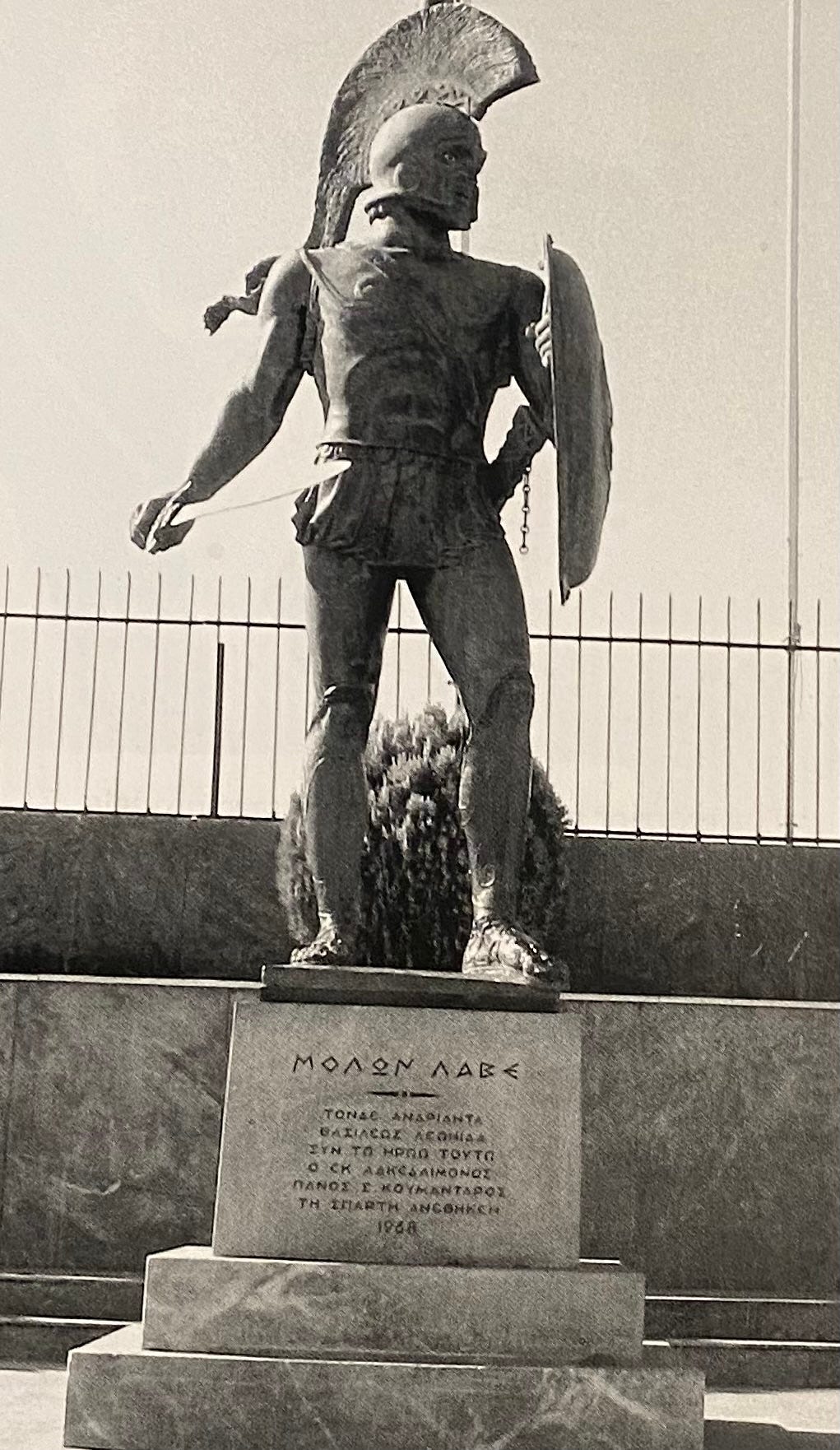The Book Report episode 33: Sparta Rise of a Warrior Nation by Philip Matyszak: The Making of a Spartan Warrior
Agoge- a system for raising Spartan children
Homoioi- The equals
The Spartans kept the agoge from the rest of Greece. The Spartans thinking was that the agoge was the reason for their military supremacy, they didn’t want anyone replicating it. For this reason, there are no firsthand accounts on the Spartans educational system. “Instead, we have to rely on interested outsiders – mainly Plato, Xenophon, Aristotle and Plutarch.” So, like their origins story, “this account of a Spartan upbringing has to be somewhat hypothetical.”
The author starts off taking about the girls of Sparta and how Lycurgus (a man who lived a long time ago who ‘dictated every moment of a Spartans life’) dictated how they were to act and behave. Unmarried women were to stay active running and doing other athletic activities “so that they might have vigorous bodies and wombs in which children could take root and come better to term, and when the time for birth was due, the women might more successfully cope with the travails of childbearing. In short, he freed them from all softness, delicacy, and femininity.” He also mentions that the girls were dressed so to not hinder their activities, while “In the rest of Greece, a well raised girl was practically a walking tent of veiled modesty, so visitors to Sparta were generally appalled by the sight of young women clad in simple knee length tunics.”
The reason for marriage was to breed warriors for the state. It is not clear whether marriages were arranged by the state or the parents, or if the couple had a say in the matter, either way, the marriage customs of the Spartans were a bit bizarre. In their mind, the only reason for marriage was to raise strong children.
Soon after birth, the child was bathed in wine. According to Plutarch, this killed a weak child but strengthened a healthy one. Then the child was presented to the Gerousia, the consul of elders. If the Gerousia were in doubt about the child, they told the mother to leave the baby “exposed on Mount Taygetus for a while. (Estimates of how long vary from overnight to several days.)” If the child survived, then they were “suitable for rearing as a Spartan.” This goes for baby girls as well. “The Spartan state had no room for passengers, and a crippled or sickly child might as well not have been born at all.”
Unlike the rest of Greece, the Spartans didn’t work, so they had more time to spend with their children. For the boys, this all changed at the age of seven. At this point, a Spartan boy was taken away from his parents and joined an agelai (heard) supervised by a heard master. This is where they learned how to be a Spartan warrior. “Now in the paides stage of the agoge child rearing system, it was time for the boy to learn the values of discipline, teamwork, and endurance. There was a certain stress on the latter. The boys were issued with a single cloak as an all-purpose, all-season garment, and slept on rushes they had personally pulled from the river.” The process was filled with hazing by older boys and the girls that were exercising near the boys, were encouraged to mock the ones they felt were inferior. The boys were told to call all male Spartans father, and anyone was able to discipline the child. “As well as regular beatings, the boys were trained to endure hunger. Each group of boys was responsible for gathering their own food for their common table, and since the state deliberately did not provide enough food.” They were encouraged to steal and “He [Lycurgus] thought this would shape the boys into fine men of good stature, since this diet created supple limbs rather than a body made of tubby by good food.” There is also a story that they were given a puppy to raise and then kill it after they got attached. They also trained boars to fight against each other.
There was an older boy assigned to a younger boy and the former would teach him the way of a Spartan warrior. This was called paiderastia or the love of boys, some argue that it was also a physical relationship, but we can only speculate. This is where the younger boy was drafted into the military and formally became a Spartan soldier. “By now our Spartan youth was fully proficient in the art of warfare.
After the boys went through all of this, they could seek a wife and start the process all over again. While reading this book, I found it a bit tyrannical and very extreme. I find some similarities in Sparta and how modern tyrants, like Mao or Stalin rule their land. I would hate to live in North Korea or Soviet Russia, but I find myself thinking it would be worth all the Spartans went through to become the military power they were. I’m probably romanticizing the experience, but I can’t help but wonder what the experience was like. Were they a bunch of psychopaths or were they great soldiers?
This has been another episode of The Book Report.


